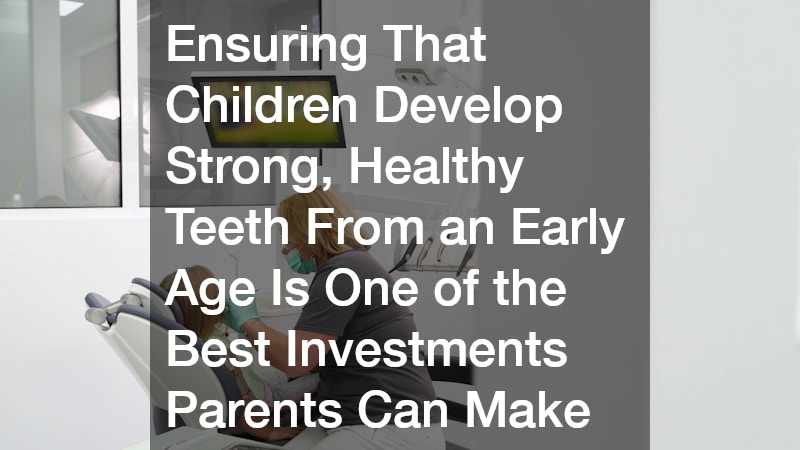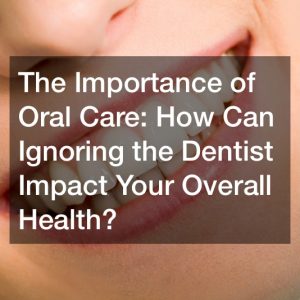Ensuring that children develop strong, healthy teeth from an early age is one of the best investments parents can make in their overall health. Pediatric preventive dentistry focuses on safeguarding young smiles before problems begin. Rather than treating dental issues after they arise, pediatric preventive dentists emphasize early intervention, education, and regular care. Their mission is to create a foundation of lifelong oral health habits, helping children grow up with confident smiles and fewer dental complications in the future.
Why Is Preventive Dentistry Important for Children?
1. Building a Foundation for Lifelong Oral Health
Children’s dental health sets the tone for their future well-being. Preventive dentistry in childhood helps establish the routines and habits that contribute to a lifetime of healthy teeth and gums. By introducing children to the dentist early and maintaining regular visits, parents help them view dental care as a normal, positive part of life. Moreover, early care ensures that baby teeth, which play a vital role in speech development and guiding permanent teeth, remain healthy. Consistent preventive attention not only protects a child’s current oral health but also reduces the likelihood of serious dental problems as they grow.
2. Preventing Common Dental Issues
Tooth decay is one of the most common chronic diseases among children, yet it’s largely preventable. Pediatric preventive dentists use a combination of routine exams, professional cleanings, fluoride treatments, and sealants to combat cavities before they start. Regular dental visits allow professionals to detect early signs of decay, gum inflammation, or misalignment and address them promptly. Preventive care also reduces the risk of gum disease and infections that can affect a child’s comfort, nutrition, and self-esteem. By focusing on prevention, pediatric dentists help families avoid the pain and expense of extensive dental treatments later on.
3. Educating Parents and Children About Oral Hygiene
Education is at the heart of pediatric preventive dentistry. Dentists not only clean teeth but also teach both parents and children how to maintain oral hygiene at home. They demonstrate proper brushing and flossing techniques and provide age-appropriate guidance on oral care routines. For parents, pediatric dentists offer advice on teething, thumb-sucking habits, bottle feeding, and pacifier use—all of which can influence dental development. This education empowers families to take an active role in their child’s dental health, ensuring that preventive habits continue between visits.
What Services Do Pediatric Preventive Dentists Provide?
1. Regular Dental Check-ups and Cleanings
Routine dental check-ups are the cornerstone of preventive care. Pediatric dentists recommend that children visit the dentist every six months for a professional cleaning and oral examination. These visits help monitor tooth growth, identify early signs of cavities, and ensure proper jaw and bite development. Cleanings remove plaque and tartar buildup that regular brushing can’t reach, keeping gums healthy and preventing decay. Regular appointments also give children the opportunity to become familiar with the dental office, reducing fear and anxiety over time.
2. Fluoride Treatments and Sealants
Fluoride treatments and dental sealants are two highly effective tools used by pediatric dentists to prevent cavities. Fluoride is a natural mineral that strengthens tooth enamel and makes it more resistant to acid attacks from bacteria and sugary foods. During a dental visit, a dentist may apply a fluoride varnish or gel to protect developing teeth. Sealants, on the other hand, are thin protective coatings applied to the chewing surfaces of molars—areas where food particles and bacteria often accumulate. By sealing these grooves, dentists create a barrier that helps prevent cavities in hard-to-clean spots. Together, fluoride and sealants offer powerful, long-lasting protection for young teeth.
3. Nutritional Counseling for Oral Health
A child’s diet has a direct impact on their dental health. Pediatric preventive dentists often provide nutritional counseling to help parents understand how certain foods affect teeth and gums. They emphasize the importance of limiting sugary snacks and drinks, which can lead to cavities, and encourage a diet rich in fruits, vegetables, dairy, and whole grains that support strong teeth. Teaching children to make healthy food choices early on helps them develop habits that benefit not only their oral health but their overall well-being.
When Should You Start Taking Your Child to a Pediatric Dentist?
1. The Importance of Early Dental Visits
The American Academy of Pediatric Dentistry recommends scheduling a child’s first dental visit by their first birthday or within six months of their first tooth erupting. Early dental visits are crucial for identifying potential problems and getting children accustomed to dental care. They also give parents a chance to receive guidance on proper brushing, fluoride use, and teething management. Establishing dental care early helps prevent future anxiety and ensures that any developmental concerns are addressed promptly.
2. What to Expect During the First Visit
The first dental visit is typically simple and friendly, designed to make the child comfortable. The dentist will gently examine the child’s mouth to check for early signs of decay, assess the gums and jaw, and ensure that teeth are emerging properly. Parents are often invited to sit with their child during the appointment. The dentist may also discuss brushing techniques, pacifier use, and diet. This initial visit sets the tone for future care and helps build trust between the child and their dentist.
3. Establishing a Routine for Regular Dental Visits
After the first visit, it’s important to maintain consistent appointments—usually every six months. These routine check-ups allow the dentist to track dental development and make timely recommendations as the child grows. Regular visits also help reinforce positive dental habits and ensure that small issues, such as minor cavities or misalignment, are treated early before they become more serious. Consistency is key to building lifelong oral health and comfort with dental care.
Pediatric preventive dentists are vital partners in helping children develop and maintain healthy smiles. Their approach focuses on early care, education, and proactive prevention rather than reactive treatment. By offering regular check-ups, fluoride treatments, sealants, and personalized guidance, these specialists help protect young teeth and instill lasting oral hygiene habits. Starting dental visits early and maintaining a consistent routine ensures that children not only enjoy healthy teeth today but also carry those habits into adulthood. Preventive dentistry isn’t just about avoiding cavities—it’s about empowering children to take pride in their smiles for life.



